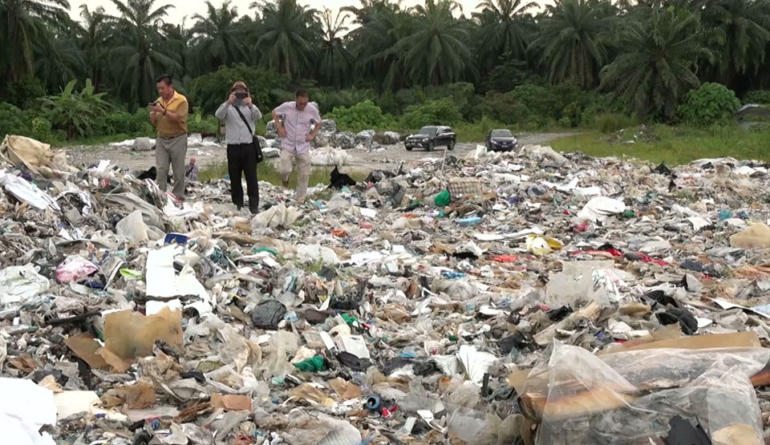Malaysia inundated with Western plastic waste after Chinese ban

Each year, the world’s developed countries generate millions of tons of plastic waste. Much of that used to be exported to China for recycling, but last year China banned the practice.
Now, the flow of plastic waste is being diverted to southeast Asia, where some officials say waste from unlicensed factories is polluting their farms and water sources.
CGTN’s Rian Maelzer visited one town in Malaysia to see for himself.
Hidden in palm oil plantations and behind tall fences, dozens of unlicensed plastic recycling factories processing waste from countries such as the U.S., U.K. and New Zealand dot this quiet district an hour from Kuala Lumpur.
Or they did, till worried residents got the authorities to shut down many of them.
Or they did, till worried residents got the authorities to shut down many of them.
The factories didn’t have proper environmental controls for washing and processing the waste. Many dumped the un-recyclable scrap on agricultural land and near waters sources. Some have just been indiscriminately burning it.
“Our village has become the victim of this incineration. With the pungent smell of burning in their noses, the villagers find it very difficult to sleep at night. People are more and more worried about how these factories threaten their health, especially their children,” Tan Chen Hin with the Kuala Langat Environmental Protection Association said.
As the authorities crack down on illegal factories in one area, indications are that many are just upping and moving to other areas under less scrutiny.
Malaysia and other Southeast Asian countries seem to be becoming a favored destination, or dumping ground, for the developing world’s unwanted plastic waste after China shut its doors.
“Companies need to remove the waste from their countries to countries where the policies are more easy to manipulate, where the regulation is less stiff and where enforcement is very weak and I think this is a problem that a developing country like Malaysia faces,” Charles Santiago, a Ruling Coalition Member of Parliament said.
Drones enabled the people of this district to document the extent of the problem and pressure the authorities to act.
Malaysia’s government says it will now ban the importation of all non-recyclable foreign plastic scrap, though many remain skeptical that the country will be able to eliminate the dumping.
Jennifer Turner on the increase of landfills in Southeast Asia
CGTN’s Roee Ruttenberg spoke with Jennifer Turner about the growth of landfills in Southeast Asia because China closed the border to imports of foreign plastics.
Turner is the Director of the China Environment Forum at the Woodrow Wilson Center in Washington, D.C.
Turner is the Director of the China Environment Forum at the Woodrow Wilson Center in Washington, D.C.
Aucun commentaire:
Enregistrer un commentaire